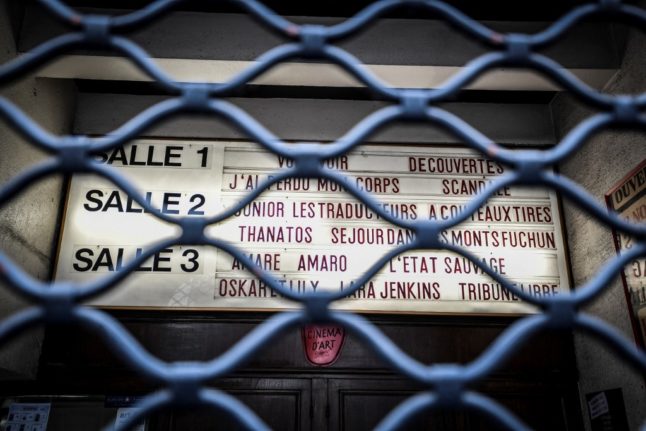What is happening?
Lost in Frenchlation, a cinema group that regularly screens French films with English subtitles in Paris, hosts virtual screenings every Friday until cinemas reopen in France.
This week they are also asking for your help with a special project.
Which film is on this week?
The next screening is on April 9th at 8pm (Paris time) and the movie is called Les Parfums (Perfumes).
Fans of the French TV series Dix pour cent (Call my agent!) will recognise one of the leading characters as the adorable, albeit bumbling, Gabriel (Grégory Montel).
REVEALED: The French in-jokes from TV series Call My Agent
For a fuller description, and more info on upcoming events, see the Facebook event (link here).
The screening will be followed by a discussion with director Grégory Magne.
If you want to watch the movie trailer, check out the video below:
Who can access?
This screening will be limited to France only, so those interested must confirm their location in order to purchase tickets, however some screenings are also open to audiences outside France.
Tickets cost €6 and can be found here.
What about that special project?
Back in May last year, Lost in Frenchlation embarked on a collaborative project that aimed to strengthen social bonds during the pandemic.
Inspired by Chris Marker’s 1963 film Le Joli Mai (The Lovely Month of May) they asked Parisians to connect with strangers in the street and film the interaction.
On Thursday, April 8th, the group launched a crowdfunding campaign where anyone who wants to help finance the post-production of the film may contribute. Full details HERE.
What is Lost in Frenchlation?
Lost in Frenchlation is a group that sets up screenings of French films with English subtitles to give the international community access to French culture and meet others in the same situation.
READ ALSO Why the French passion for dubbing films shows no sign of dying out
Usually the screenings in Paris are preceded with drinks, but since Covid-19 forced cinemas across France to close their doors that has no longer been feasible.
On the plus side, the virtual screenings are available across France, meaning not just Parisians will be able to access French films with English subtitles.
In addition to the online screenings, Lost in Frenchlation has launched a VOD page (link here) with more than 70 French films available to watch with subtitles in different foreign languages, including, of course, English.
For more information, check out their website or sign up to their newsletter (link here).




 Please whitelist us to continue reading.
Please whitelist us to continue reading.
Member comments